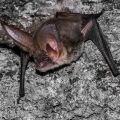Pigeon flock members can ‘overrule’ incompetent leaders, research shows
14 September 2016
Flock leaders who attempt to give their fellow pigeons incorrect information about their direction of travel can be overruled by the collective wisdom of the group, according to new research from the University of Oxford.
Recent modelling work has predicted that the mistakes of a misinformed leader will propagate down a hierarchical decision-making system such as a pigeon flock. However, using a method known as ‘clock-shifting’ that interferes with pigeons’ sense of direction, researchers have shown that bad leadership can be overcome, setting the flock back on the correct course.
Research from the same group at Oxford has previously found that the fastest pigeons tend to become flock leaders, rather than the most competent.
The new study is published in the Royal Society journal Biology Letters.
Lead author Isobel Watts, a doctoral candidate in the Oxford Navigation Group in the University’s Department of Zoology, said: ‘Previous research in homing pigeons has identified a navigational leadership hierarchy where an individual’s position in the hierarchy reflects its weight of contribution in the decision-making process. In this study, we were interested in how much control the “top” bird actually has over the flock’s decisions during homing. Do the top leader’s decisions simply cascade down the hierarchy, or are lower-ranked birds also able to influence the direction in which the flock flies? By manipulating the quality of the leader’s information, we hoped to discover whether a poorly informed leader was still allowed to lead or whether the flock would “overrule” inaccurate leadership.’
The study, carried out in Oxfordshire, involved eight GPS-tracked flocks of five birds each and made use of the clock-shifting technique to ‘jetlag’ certain birds. In some experiments, only the leader was clock-shifted, while in others either the whole flock or no birds at all underwent the process.
Isobel Watts said: ‘What we found was that when the whole flock was clock-shifted, the flock tended to deviate from its normal homeward flight path, whereas when solely the leader was clock-shifted, the flock was generally able to stay on course. Interestingly, we saw from GPS data on flock positions that misinformed leaders tended to lose their place at the top of the hierarchy, spending less time at the head of the flock and less time being followed in their movements by others.’
She added: ‘The exact mechanism by which a flock is able to correct for misinformation coming from its leader is still unclear. However, we can speculate that it may be due to either misinformed flock leaders doubting their own abilities and paying more attention to what their flockmates appear to be doing, or the flock members recognising weakness in the leader and taking more control themselves.’
Co-author Dr Dora Biro, also of the Oxford Navigation Group in the Department of Zoology, said: ‘Although homing pigeon flocks have fairly stable hierarchical decision-making structures, our results show that they also demonstrate flexibility, and, crucially, they do so in a situation where the performance of the whole flock would suffer if they were inflexible. Following a “bad” leader could lead the whole flock astray, and the capacity to reorganise the leadership hierarchy in this case allows them to stay on course. This could be particularly important in migratory bird species, where getting lost during a trip could be a matter of life and death.’
For further information, please contact Stuart Gillespie in the University of Oxford press office at [email protected] or on +44 (0)1865 283877.
Images are available to download here (please credit Zsuzsa Ákos): https://picasaweb.google.com/102195922289454842677/Pigeon_CB?authkey=Gv1sRgCIDFjuy0_ae4Yw&feat=directlink
Isobel Watts: [email protected]
Dr Dora Biro: [email protected]
Notes to editors:
The paper ‘Misinformed leaders lose influence over pigeon flocks’ will be published in Biology Letters. DOI: 10.1098/rsbl.2016.0544.
The Mathematical, Physical and Life Sciences Division (MPLS) is one of four academic divisions at the University of Oxford, representing the non-medical sciences. Oxford is one of the world’s leading universities for science, and MPLS is at the forefront of scientific research across a wide range of disciplines. Research in the mathematical, physical and life sciences at Oxford was rated the best in the UK in the 2014 Research Excellence Framework (REF) assessment. MPLS received £133m in research income in 2014/15.
 New study on Amazonia's fire crises urges action ahead of the next burning season
New study on Amazonia's fire crises urges action ahead of the next burning season
 New heart disease calculator could save lives by identifying high-risk patients missed by current tools
New heart disease calculator could save lives by identifying high-risk patients missed by current tools
 Modern Slavery and Human Rights Policy and Evidence Centre moves to Oxford University after receiving continuation funding
Modern Slavery and Human Rights Policy and Evidence Centre moves to Oxford University after receiving continuation funding
 Study shows that island bats are valuable allies for farmers
Study shows that island bats are valuable allies for farmers
 Study reveals how humanity could unite to address global challenges
Study reveals how humanity could unite to address global challenges